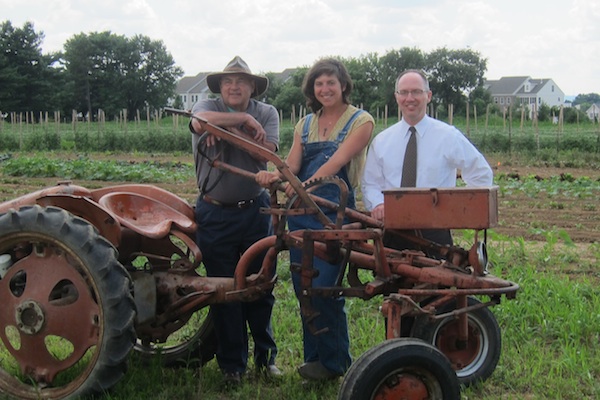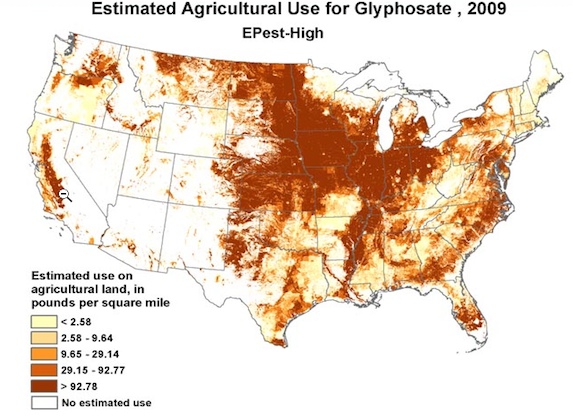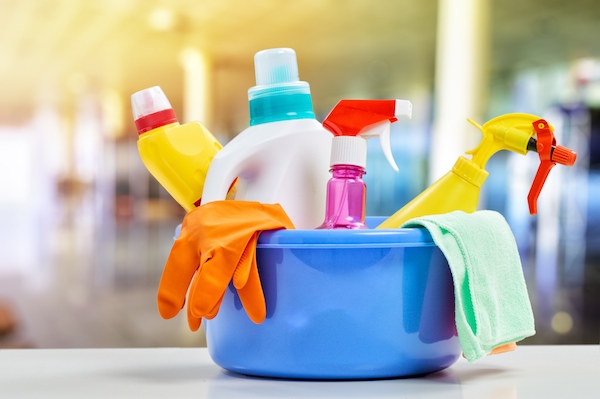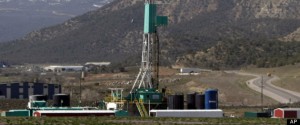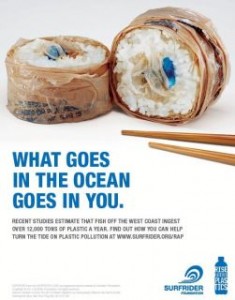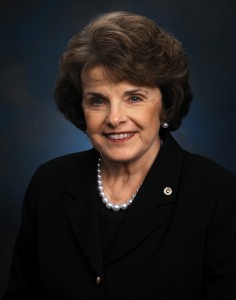Rodale Institute and St. Luke’s University Health Network launched a true farm to hospital food program. The Anderson Campus at St. Luke’s has over 300 acres of farmland, much of which had historically been farmed conventionally with crops like corn and soy. The hospital administration recognized the impact that providing fresh, local organic produce could have on patient health and approached Rodale Institute to transition the land to organic and farm vegetables to be used in patient meals as well as in the cafeteria.
Continue reading... →“Glyphosate is the backbone of our current agricultural system that supplies us with toxic food, water and air. We aim to ban glyphosate by allowing the public to inform themselves about what levels of glyphosate are found in their own and their family’s bodies. Feed The World will also give a platform to profitable, agriculture alternatives that allow farmers, businesses and governments to change direction towards a better non-toxic future for our children.” – Henry Rowlands, Director of Feed The World
Continue reading... →Podcast: Play in new window | Download
Subscribe: RSS
This podcast is worthy of a rerun. Liberty Phoenix Lord took a deeply painful experience, the death of her baby due to toxic outgassing in his nursery, and started a green building store so no other parent would have to ever experience what she did. Ever. Liberty’s transparency and willingness to tell her story is deeply moving.
FYI: Liberty is the sister of River and Joaquin Phoenix, and this podcast is the first time she has spoken about her tragedy in public. Listen to her unbelievably moving story right here on Women Of Green.
About my guest: Liberty Phoenix Lord has been a resident of Gainesville, FL since 1989. She is married and has 3 beautiful children; and is on the Board of the United States Green Building Council (USGBC the heart of Florida chapter). Liberty owns and runs INDIGOGreen, a Green Building supply store. The mission of INDIGO is based on her commitment to the environment and the health of our planet.
Continue reading... →New independent lab testing on 20 top household cleaning products reveals that cleaning products commonly contain hidden chemicals linked to cancer, birth defects and pregnancy complications. The tests were commissioned by the national nonprofit Women’s Voices for the Earth.
The report, “Dirty Secrets: What’s Hiding in Your Cleaning Products?” (www.womensvoices.org) shows that top-selling cleaning products and detergents, including Tide Free & Gentle, Pine-Sol and Simple Green All-Purpose Cleaner, contain toxic chemicals not revealed to the consumer.
Continue reading... →From Huffington Post via Women Of Green
WASHINGTON — Natural gas drillers would be required to disclose the chemicals they use in hydraulic fracturing or “fracking” on public lands, according to draft rules created by the Department of Interior. The proposed regulations would also force companies to report the amount of any given chemical injected during the fracking process.
The move for increased regulation comes after President Barack Obama touted his commitment to expanding natural gas production while ensuring the drilling is done responsibly. “My administration will take every possible action to safely develop this energy,” he said during his State of the Union address last month. Fracking, which involves the high-pressure injection of undisclosed chemicals into rocks containing oil or natural gas, has drawn increasing scrutiny from environmentalists who suggest the process contaminates groundwater and destroys ecosystems.
Under the proposed regulations, companies would be required to reveal the “complete chemical makeup of all materials used,” according to a copy of the rules obtained by The Huffington Post. But environmentalists have noted that, while the regulations offer some “good elements,” the rules still offer companies considerable protections for “trade secrets,” an exemption some worry could negate the rule.
Interior Secretary Ken Salazar has said regulations will also cover well-bore integrity and regulation of flowback waters (the fluids that rise to the surface after hydraulic fracturing operations are complete). Further, reports detailing the ingredients used in the fracking fluids and a fluid treatment plan must be submitted 30 days before operations begin at any proposed well.
Interior spokesman Adam Fetcher elaborated in a statement.
Continue reading... →Recent studies estimate that fish off the West Coast ingest over 12,000 ton of plastic a year. How many plastic water, soda, juice bottles and plastic bags did you toss last year? Say NO to plastic. Promise?!
Continue reading... →By Senator Dianne Feinstein
Chalk up a win for moms around the country.
After years of battle, the chemical industry has reversed its longstanding position against restrictions on the controversial chemical bisphenol A, known as BPA, and asked the Food and Drug Administration to revise regulations on the use of the chemical in baby bottles and sippy cups.
It is ironic that the industry asking federal regulators to revise BPA standards is the very same industry that spent millions of dollars lobbying to block my legislation restricting the use of this dangerous chemical.
The American Chemistry Council must have realized that no matter how much money they spent, no parent, grandparent or concerned person would stand by while our children are used as guinea pigs with a chemical that could seriously harm their immediate and long-term health.
BPA is an endocrine disruptor, meaning that it can interfere with how hormones work in our bodies by changing their normal function. More than 200 studies link BPA exposure to breast and other cancers, reproductive disorders, cardiac disease, diabetes, early puberty and other problems.
Yet, the chemical industry stubbornly refused to listen to science and concerned consumers, and instead leaned on lawmakers.
Last year, the American Chemistry Council actually lobbied to prevent a vote in the Senate on the change it now seems to be advocating–a national ban on BPA in baby bottles and sippy cups.
Here’s why I think chemical industry lobbyists failed: Even though they successfully blocked a vote on BPA, consumers took matters into their own hands and voted against BPA with their wallets. Every time a BPA-free product was purchased, it marked a setback for the chemical industry.
For years the chemical lobby ignored the pleas of concerned parents, environmentalists and advocacy groups that called for a ban on BPA. Companies ignored the studies and continued to argue that there was no established link between BPA and many illnesses. There was simply no other alternative, the companies insisted—baby bottles and sippy cups could only be made with BPA.
Clearly they were wrong.
Read more at Senator Dianne Feinsten’s website
Continue reading... →